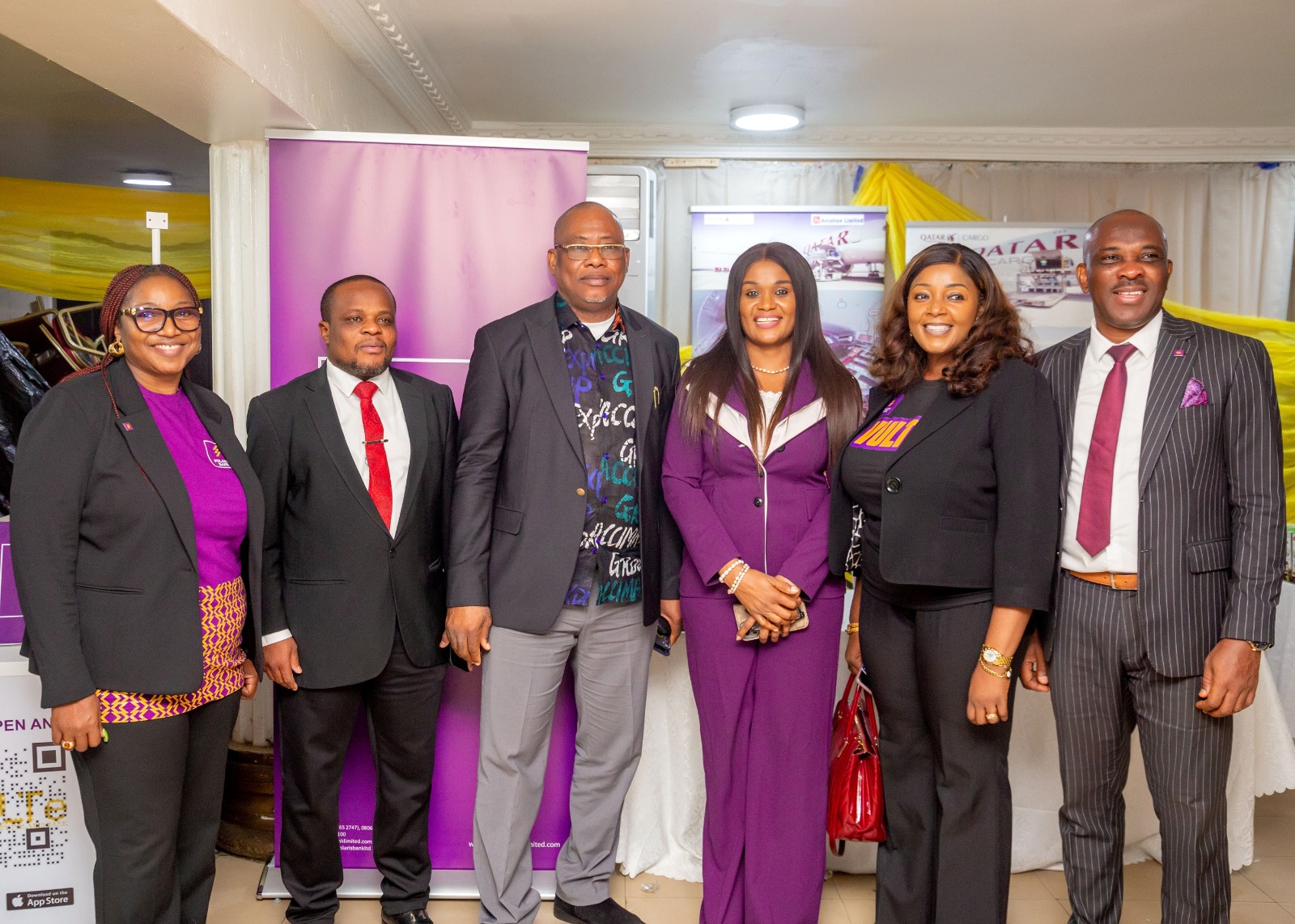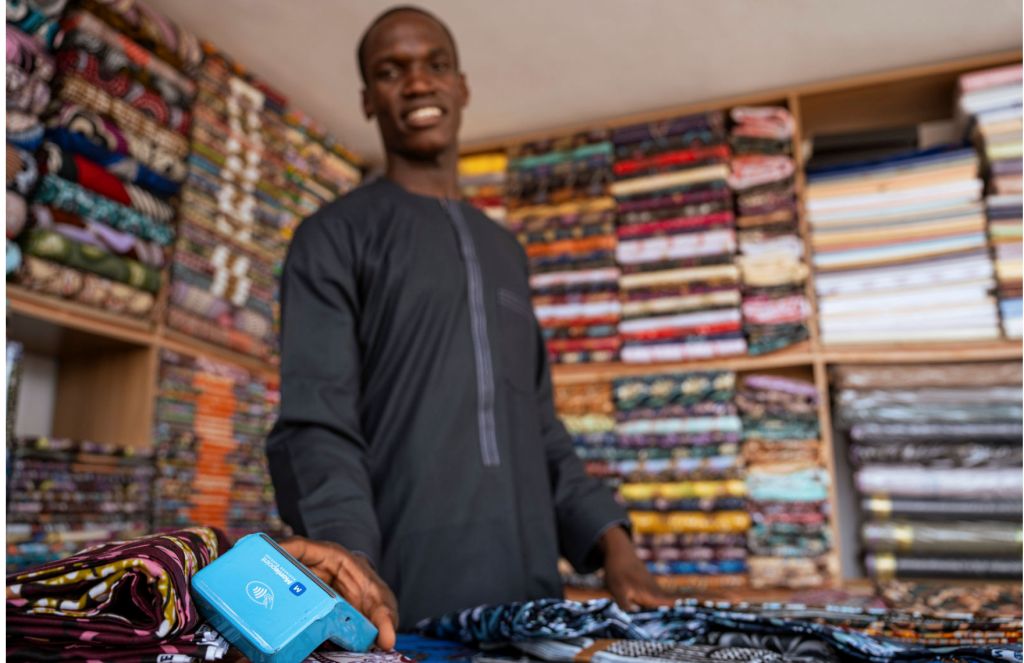Banking
What is the Future of Private Banking in Africa?

Africa’s growth story may have been hampered by COVID-19, and whilst challenges remain, there are still investment opportunities and wealth creation taking place.
There are, at present, around 136,000 high net-worth individuals (HNWIs) living in Africa, with total private wealth held on the continent amounting to $2 trillion. Those numbers are expected to keep growing too. In fact, the number of HNWIs in Nigeria alone is expected to grow 40% over the next decade[1].
That means private banking in Africa, and in Nigeria, the continent’s biggest economy, will only become more important. Recent reports suggest that wealth in Africa is poised to grow at a stronger level than many other regions around the world.
But, as the number of people needing private banking services grows, these services will also have to adjust to their changing wants and needs. Among other things, that means helping clients with tangible investments diversifying away from their local markets, offering Discretionary Portfolio Management, and balancing traditional and digital banking services.
According to Amol Prabhu, Market Head: Africa at Barclays, families within these brackets, especially those with established wealth, are also looking for access to global networks and corridors, the ability to invest in other entrepreneurs on the continent and globally, and ways to ensure that their children can be educated overseas.
‘Not just private banking’
Prabhu notes that providing access to those global networks often means going above and beyond traditional private banking expertise.
By way of example, he says, “We’ve got a family based in Nigeria who are in the goods trading business. The entire family – parents, all three children and their spouses – bank with us. Their business is headquartered in Nigeria but extends across the corridor to Dubai and India, where it is managed by their extended family who happen also to bank with us. Having the ability to support these global families in every location as well as both individually and holistically is critical.”
“Also, as the client’s business grows, their needs change over time and we are well positioned through our Corporate and Investment Banking offering to provide this support. It’s the ability to provide clients with coverage that’s not just multi-location but also multi-business, multi-product and multi-generational that’s important,” he adds. “These types of clients have got complex, global needs, so that’s where real value can be added. Few banks provide this coverage and even fewer do it very well.”
According to Prabhu, another specific area that African clients look for help with is prime and super prime UK real estate.
“That can be people wanting to have a second home in London and spend more time there or wanting London properties as part of their investment portfolio,” he says. “And generally, because people are spending more time in these houses, they want bigger properties too.”
This attraction to the UK, he says, is overlaid by the fact that many clients expect that their children will live, work, or study in the UK at some point in their lives, as many of them have done.
The rush for direct assets
Another significant trend, Prabhu points out, is the growing demand for direct assets.
“What that means is that entrepreneurial families like to invest in other entrepreneurs,” he says. “It can be high-growth technology companies: fintech, medtech, agritech or ones focused on climate change and other issues.” The number of African tech start-ups receiving funding grew six times faster (46%) than the global average (8%), between 2015 and 2020[2], demonstrating the interest in this sector.
“These kinds of companies are typically looking for funding anywhere from $1 million to $200 million and we open it up to our ultra-high net-worth and global families within the Private Bank to give them the opportunity to invest.”
Crucially, these companies are all private, meaning that these investments are not open to the general, public market. By facilitating these investments, Barclays Private Bank not only helps their clients make more meaningful investments on the continent but also help grow the continent’s entrepreneurial ecosystem.
Classic portfolio management
While those trends will undoubtedly shape private banking in Africa for some time to come, Prabhu points out that there’s still significant value in classic asset and portfolio management. The key, however, is to have managers and methodologies that can thrive even during periods of global political and economic uncertainty.
“If you’re sitting in Lagos and you’ve got a portfolio in the UK or Switzerland, you are literally thousands of miles away from your hard-earned money,” he says. “You have got to have real trust in the institution, the portfolio team and their underlying methodology that your money is being managed properly.”
Talent development is crucial
In order to ensure that all those needs are fulfilled, however, the right level of talent is essential.
“A high-quality talent bench is vital,” says Prabhu. “And to service African private banking clients effectively, they should either be from Africa, have lived on the continent, or have a decade+ of Africa private banking experience. Having that deep experience and a high-quality service mentality is critically important to show and deliver value.”
Ultimately, he points out, you are helping people who are typically very good at what they do but may have very little banking and investment knowledge and / or time to look into these things.
“At the end of the day, our role is to help and guide clients to make the right kinds of decisions in the financial context,” he says. “And having the right talent and skills on-hand as well as a quality institution behind you is crucial to that.”
As the number of high net worth and ultra-high net worth individuals in Africa continues to grow, having the right partners with those skills and knowledge will only become more important.
[1] Source: Africa Wealth report
[2] Boston Consulting Group: Overcoming Africa’s Tech Startup Obstacles
Banking
Polaris Bank Assures MSMEs Access to Finance for Non-Oil Exports

By Modupe Gbadeyanka
Entrepreneurs in the micro, small and medium-sized enterprises (MSMEs) sector in Nigeria have been assured access to finance by Polaris Bank Limited to strengthen the country’s non-export ecosystem.
The financial institution gave this assurance at the NAHCO and NACCIMA Export Group Programme themed Breaking Barriers: Helping SMEs Navigate Export Procedures for Agro Products and Other Commodities.
An executive director at Polaris Bank, Mr Chris Ofikulu, underscored the national importance of export diversification and the central role of MSMEs in building a resilient economy.
He noted that reducing Nigeria’s dependence on oil revenues requires coordinated action across the public and private sectors to strengthen non-oil exports, particularly within agro-exports and commodity trade.
“Expanding non-oil exports is not optional; it is a strategic imperative for building a resilient, inclusive and competitive Nigerian economy. SMEs, particularly in agro-exports and commodity trade, hold the key to unlocking our true comparative advantage.
“Polaris Bank remains committed to providing the finance, advisory support and partnerships required to help them scale confidently and compete globally,” Mr Ofikulu said.
Also addressing stakeholders, the Team Lead for Trade Services at Polaris Bank, Mr Olaleye Arinola, highlighted the importance of removing trade and payment bottlenecks that limit exporter competitiveness and cash flow, emphasizing the lender’s focus on building confidence and certainty into the export process through practical financial and advisory support.
“Exports cannot grow if finance and payments remain obstacles. At Polaris Bank, our focus is on removing friction from international trade by ensuring SMEs get paid faster, safer and with greater certainty through efficient trade finance, secure cross-border payments and hands-on guidance across documentation, FX and compliance,” Mr Arinola said.
It was gathered that the one-day engagement brought together regulators, industry stakeholders, exporters and trade bodies to advance practical solutions for easing trade barriers, improving access to finance and building a more resilient and diversified Nigerian economy.
The programme also marked the formal introduction and launch of the NACCIMA Export Group and the NAHCO Export Support Centre for MSMEs in Nigeria, creating a structured platform for exporters to access trade facilitation services, logistics support, regulatory guidance and financial solutions across the export value chain.
The engagement also focused on addressing structural challenges confronting exporters, including infrastructure gaps, port inefficiencies, logistics constraints, standards and certification requirements, and policy consistency.
Participants emphasized the need for stronger public-private collaboration among government agencies, trade bodies, financial institutions and logistics partners to simplify export procedures and improve market access for Nigerian SMEs.
As part of its partnership with the business and trade community, Polaris Bank unveiled a Dedicated Help Desk for NACCIMA members, designed to provide direct access to trade finance and payment support, fast-track resolution of export-related enquiries, and personalized advisory services on FX documentation and regulatory compliance.
Banking
Moniepoint Processes N412trn Transactions, Disburses N1trn Loans in 2025

By Adedapo Adesanya
Nigerian financial services firm, Moniepoint Incorporated, processed N412 trillion in transaction value and disbursed more than N1 trillion in loans to small businesses in 2025, as the company continues to grow Nigeria’s expanding retail payments and credit structure.
The company said it handled more than 14 billion transactions during the year and now powers about 80 per cent of in-person payments nationwide, underscoring the increasing concentration of payment flows through a small number of fintech platforms.
Moniepoint also averaged 1.67 billion monthly transactions in 2025 and grew its card user base by 200 per cent, with its cards being used 1.7 million times daily.
The organisation also processed over 500,000 data renewals daily, while customers spent N90 million ($64,264) daily at gyms.

Moniepoint’s scale reflects a broader shift in Nigeria’s payments landscape, where point-of-sale terminals and digital transfers have become central to everyday commerce, from neighbourhood shops to open-air markets.
Founded in 2015, Moniepoint has evolved from a backend technology provider into Nigeria’s largest merchant acquirer, offering payments, banking, credit, foreign exchange and business management tools to more than 6 million active businesses.
The company said it expanded lending to small businesses that are often excluded from bank credit, disbursing more than N1 trillion in loans through its microfinance banking unit in the year under review.
“Our focus has been on building infrastructure that works for how businesses actually operate,” said Mr Tosin Eniolorunda, Moniepoint’s founder and chief executive, pointing to the prevalence of informal trade in Africa’s largest economy.
In 2025, Moniepoint became a unicorn after it raised more than $200 million in a Series C funding round backed by investors including Development Partners International, Google’s Africa Investment Fund, Visa, the International Finance Corporation and Verod Capital, providing capital to scale its payments and financial services operations.
Beyond acquiring, the company said its switching and processing subsidiary, TeamApt Ltd, secured licences from Mastercard and Visa to operate as a processor and acquirer, enabling it to handle international card payments and provide switching services to other businesses across Africa. Its web payments gateway, Monnify, processed N25 trillion in transactions during the year.
Recently, the Central Bank of Nigeria (CBN) upgraded Moniepoint’s microfinance bank to a national microfinance bank licence, allowing it to expand its footprint across the country and broaden the range of products that it can offer.

Banking
Standard Bank Helps Aradel Energy With $250m Financing Facility

By Aduragbemi Omiyale
A $250 million financing facility to support the acquisition of about 40 per cent equity in ND Western Limited from Petrolin Trading Limited has been secured by Aradel Energy Limited, a wholly owned subsidiary of Aradel Holdings Plc.
The funding package was facility for the energy firm by Standard Bank, which comprises Stanbic IBTC Capital Limited, Stanbic IBTC Bank Limited, and the Standard Bank of South Africa Limited.
The facility, Business Post gathered, was structured to support Aradel Energy’s strategic growth agenda, the refinancing of existing loan facilities, and the funding of increased production from the company’s existing asset base.
Aradel Energy is the operator of the Ogbele and Omerelu onshore marginal fields, as well as OPL 227 in shallow water terrain.
Prior to the transaction, Aradel Energy held a 41.67 per cent equity interest in ND Western, and following the completion of the acquisition, its shareholding in ND Western has increased to 81.67 per cent.
ND Western holds a 45 per cent participating interest in OML 34 and a 50 per cent equity interest in Renaissance Africa Energy Company Limited, the operator of the Renaissance Joint Venture and a 30 per cent owner of one of Nigeria’s largest and most strategic energy portfolios.
As a result of the transaction, Aradel Energy’s indirect equity interest in Renaissance has increased to 53.3 per cent, significantly strengthening the company’s upstream position and long-term value creation potential.
Standard Bank acted as Global Coordinator and Bookrunner, leading the structuring, execution, and funding of the facility, affirming its deep sectoral expertise and reinforces its position as a leading financier in Africa’s energy industry.
This transaction reinforces Standard Bank Group’s commitment to providing strategic capital to clients as they execute on their transformative growth objectives.
By delivering tailored financing solutions that enable sustainable value creation, the Bank remains a trusted partner to leading corporations across Africa’s evolving energy landscape.
“As Aradel Energy consolidates its position as one of Nigeria’s leading oil and gas companies, Stanbic IBTC Bank is proud to serve as a trusted long-term partner supporting the company’s growth ambitions,” the Executive Director for Corporate and Transaction Banking at Stanbic IBTC Bank, Mr Eric Fajemisin, stated.
Also commenting, the Regional Head of Energy and Infrastructure Finance for West Africa at Standard Bank, Mr Cody Aduloju, said, “The transaction illustrates Standard Bank’s ability to deliver large-scale, tailored funding solutions and further demonstrates our support to the fast-growing indigenous companies of Nigeria’s oil and gas sector.”
The chief executive of Aradel Holdings, Mr Adegbite Falade, said, “The acquisition bolsters Aradel Energy’s competitive positioning across Nigeria’s oil and gas value chain and supports our commitment to strategic growth, asset optimisation, and enduring value creation. We are pleased to have partnered with Standard Bank, who supported us and delivered a fully funded solution under very tight timelines.”
-

 Feature/OPED6 years ago
Feature/OPED6 years agoDavos was Different this year
-
Travel/Tourism9 years ago
Lagos Seals Western Lodge Hotel In Ikorodu
-

 Showbiz3 years ago
Showbiz3 years agoEstranged Lover Releases Videos of Empress Njamah Bathing
-

 Banking8 years ago
Banking8 years agoSort Codes of GTBank Branches in Nigeria
-

 Economy3 years ago
Economy3 years agoSubsidy Removal: CNG at N130 Per Litre Cheaper Than Petrol—IPMAN
-

 Banking3 years ago
Banking3 years agoSort Codes of UBA Branches in Nigeria
-

 Banking3 years ago
Banking3 years agoFirst Bank Announces Planned Downtime
-

 Sports3 years ago
Sports3 years agoHighest Paid Nigerian Footballer – How Much Do Nigerian Footballers Earn













